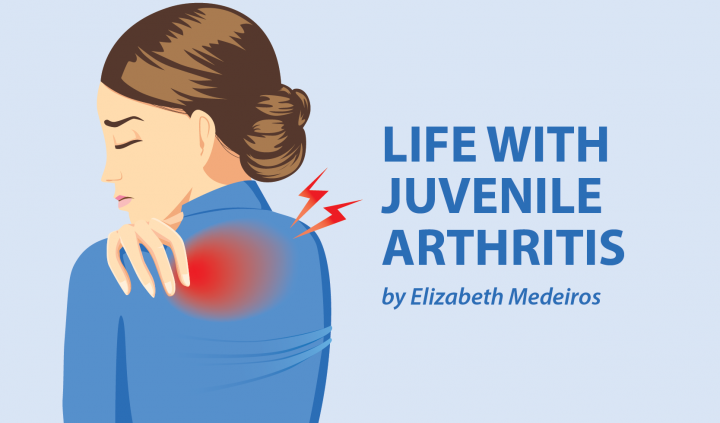Cooking is one of my favorite hobbies. Nothing makes me happier than making a good, hearty meal to share with loved ones. I love the entire cooking process, from discovering new recipes online to taste testing to make sure it’s just right.
Unfortunately, cooking aggravates my juvenile-onset arthritis to no end. Between chopping ingredients, standing over an oven, and lifting heavy pots, it’s no surprise that I tire out quickly and feel my joints swell up. And I swear, the pain doubles when I’m trying to cook for friends or family. It’s upsetting when I want to treat my loved ones but end up needing them to step in and help out or take over because I pushed myself too far.
I use a lot of adjectives to describe the pain of juvenile arthritis (JA) — discouraging, depressing, and scary are just a few that come to mind. But frustration and aggravation are two common themes we don’t talk about nearly enough. JA pain and fatigue can quickly get in the way of life. What’s worse, it can make doing favorite activities unbearable.
Learning independence with JA
Being able to complete a project, such as doing a craft or cooking a meal, and solve problems are essential skills that will carry kids through life. However, projects may trigger pain in kids with JA. While it’s tempting to swoop in and take over when they seem overly tired or in pain, I advise against it. I think it can increase their frustration and feelings of “I can’t do it.”
Instead, use these situations as opportunities for learning and to show love. Your child with JA will benefit from learning to ask for help, pace themself, and plan for rest. You can show love by recognizing your child’s efforts.
Ask for (and accept) help
Offer your child help, and gently remind him or her that it’s always OK to ask for it. Try not to force it too much, because accepting help can be just as hard as asking for it. You might suggest that you could help with a particular task. For example, if the child is trying to cook a meal, ask, “How about I chop the carrots?” instead of, “Are you sure you don’t want help?” In my experience, being offered specific help is a little less intimidating.
Pacing
Teach your child proper pacing, which includes starting a project early and planning for breaks, so the child can finish it on his or her own. Your child with JA needs to learn self-care to keep from burning out or flaring. In our fast-paced world, young people sometimes need to be reminded that it’s vital to take breaks and pace themselves. While I didn’t at the time, I now appreciate all the times my mum made me set aside a whole day for a project rather than a few hours. It helped take off some pressure, and I felt like I could take my time.
Before your child starts a project, you could discuss a timeline that includes time to relax. When I was younger, I never thought about building breaks into my schedule or considered needing extra time in the event things didn’t go perfectly. Even your teen can benefit from being encouraged to take things slowly.
Acknowledgment
I cannot stress enough how important it is to acknowledge your child’s best efforts, especially when he or she is working through pain. Being critical of a child’s efforts can be discouraging, at best. At worst, it can kickstart some unhealthy perfectionist habits.
It doesn’t mean you have to praise every single thing your child does, but recognize the effort being put in. Teens, in particular, who may be feeling pressure to perform tasks as well as an adult, especially appreciate acknowledgment. I find it encouraging when someone tells me they appreciate the effort I made. Even if things didn’t turn out perfectly, it makes me more willing to try again — and plan a little better next time.
Teach through example
Have you ever heard the saying, “Monkey see, monkey do?” The best way to teach is to set a good example. Kids mimic what they see at home.
Is it always possible to stop and take a break while you’re in the middle of chores? No. But make a point of talking about how you plan and make time for yourself to rest. And don’t be afraid to let your child see you ask for help. Normalizing these behaviors will help keep your child from feeling guilty about practicing self-care or asking for help later on.
***
Note: Juvenile Arthritis News is strictly a news and information website about the disease. It does not provide medical advice, diagnosis, or treatment. This content is not intended to be a substitute for professional medical advice, diagnosis, or treatment. Always seek the advice of your physician or other qualified health provider with any questions you may have regarding a medical condition. Never disregard professional medical advice or delay in seeking it because of something you have read on this website. The opinions expressed in this column are not those of Juvenile Arthritis News, or its parent company, BioNews Services, and are intended to spark discussion about issues pertaining to juvenile arthritis.

